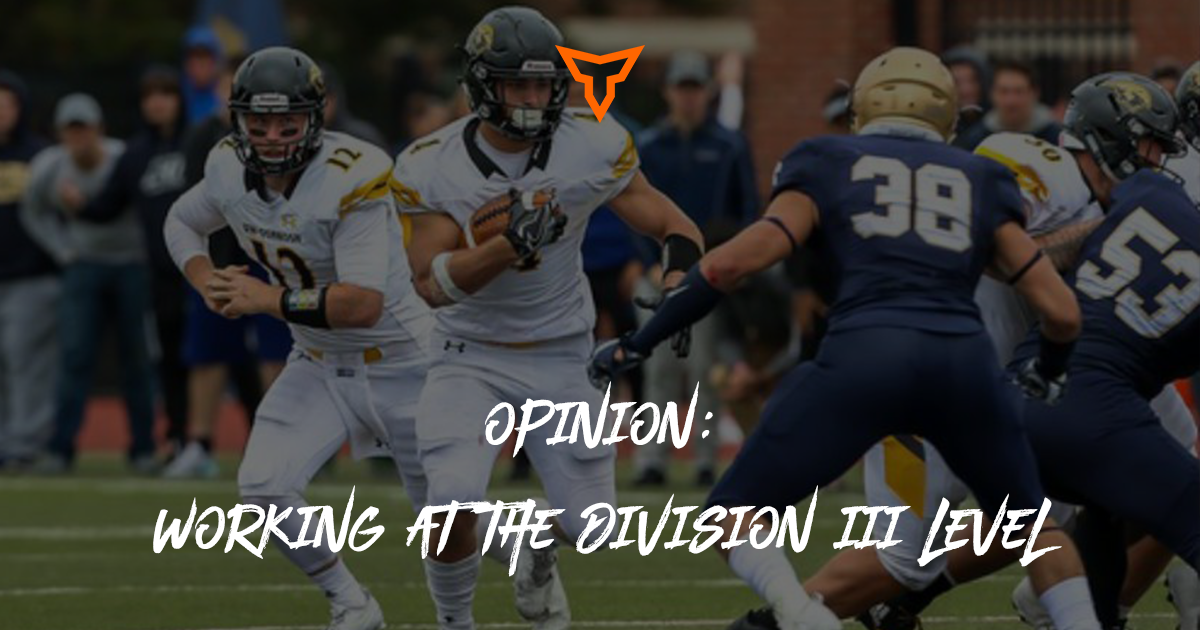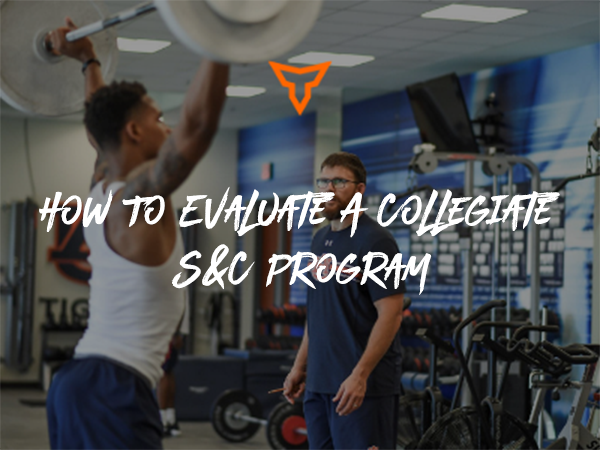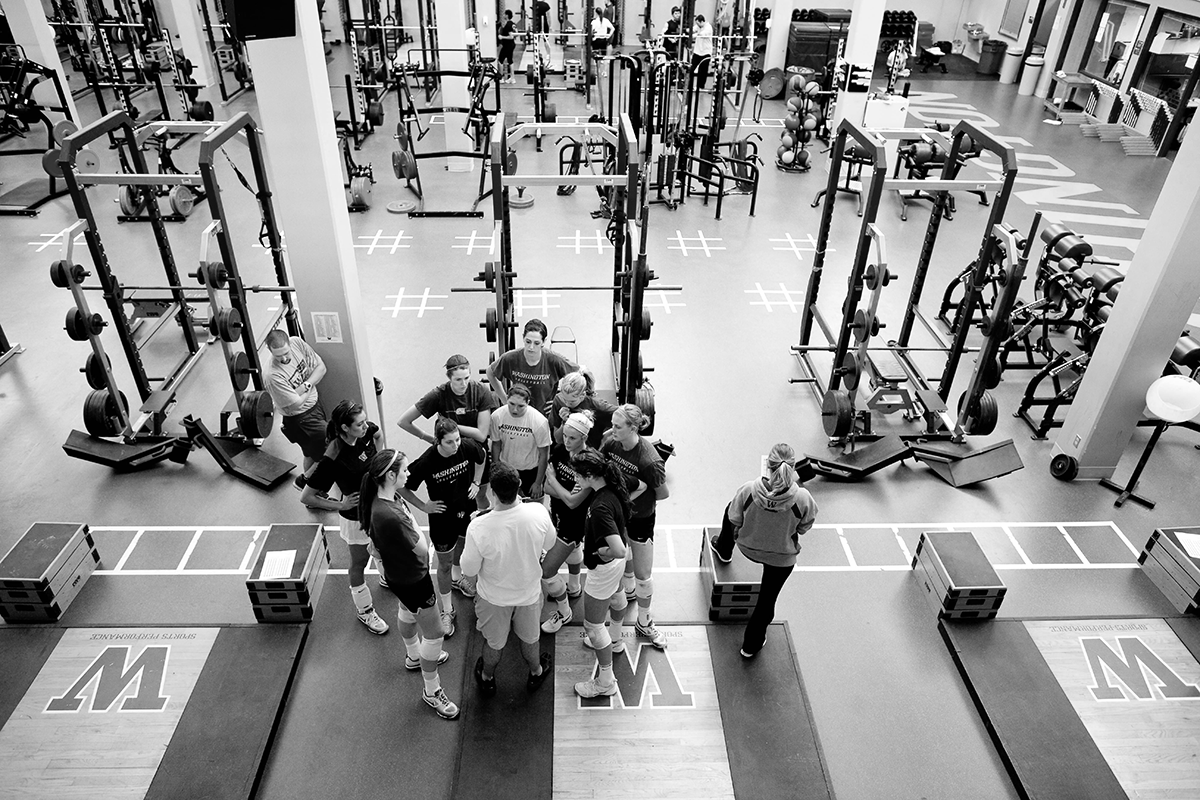The Switch: Leaving College Strength & Conditioning
"Vulnerability is the birthplace of innovation, creativity and change.”
- Dr. Brown
“My name is Candice Walls and I’m a Collegiate Performance Coach”.
For the past 13 years of my life, I have said that sentence a million times. I was never just “Candice” but “Candice the Collegiate Performance Coach”. After 13 years of my identity being wrapped up in professional title, I decided to make a shift. I am, still a Performance Coach. I just drop the “collegiate” part now. To most outside the field, that would not mean much but for those in the trenches you know what I am talking about. We sacrifice so much to hold that title. For some reason we choose that title over family, relationships, financial security, health and at times happiness. It took me 13 years for me to ask myself, "Why am I so hung up on a title? Why am I so wrapped up on the level that I coach at?"
Why I Made The Switch
Looking at myself in the mirror made me realize that I had gotten off the path of what brought me into the performance world. I was not a 5 star recruit out of high school. I never played in the WNBA. I was a mountain girl from Kentucky that played on a lower division basketball college team. I was a girl who fell in love with the performance world because I saw the potential that it had to change lives. I started this career not even with the intent to work at the college level. My soul purpose was to give kids an opportunity to experience something that I was never fortunate enough to have, which was a performance coach.
While the field has made me question some of the things that I have sacrificed over the years it has also brought me so much joy and happiness. This career allowed me to live in multiple states. This career allowed me to train Olympians, draft picks, and some of the best collegiate student-athletes in their sport. I also received the blessing of being mentored by some of the best in the field. Some of my closet friends, that I consider family to this day, I met in this field. I even met my fiancé at a National Conference. So where did I get off the path? How can something that brought me so much joy, love, and life changing experiences, go so wrong?
When I honestly think about it, it was me. It was not the field. It was not the schools. It was not the administration. It was that I forgot to take care of myself. I forgot my values. I allowed areas in my life to become unbalanced. When I honestly think about it, I had no real-life work balance. We all talk about it but let us look at the facts. Some of the best coaches in the world have some of the worst family lives or they simply do not have one. There is a reason why the divorce rate in coaches is so high. We preach to these athletes the "1% rule" (give or make yourself better daily, 1% at a time). So why are we not following it? You cannot keep every cup full in every area of your life, but can you consistently put 1% in it?
I also believe that with time we evolve. Our priorities change. Our values shift. So, we say adapt and survive but do we apply it to ourselves? I know, I am not the same person I was at 25 and thank goodness I am not.
I look at the world with a completely different lens now. Maybe your dream of being an AD is not your dream anymore. Maybe you have kids now and see the importance of training the younger generation. So, you make the switch to a high school or private sector. Maybe your significant other is in the military and he/she gets relocated to the other side of the country. Do you go and adapt, or do you stay and sacrifice? As we age, we consistently must shift our mindset. These are things I never thought of when I started. I had the mind-set that come hell or high water, I was going to do anything and sacrifice anything to get where I wanted to be. Poor silly Candice and her simple way of thinking. Also, shame on me for judging those that did make those changes. I understand now and please forgive me for the silent judgements.
Being A High School Performance Coach
Now that you have my back story, let me share with you where I am at in my career. “My name is Candice Walls, and I am a High School Performance Coach”. That is not a sentence I thought I would be saying but there it is. I would be lying if I said it has been an easy path. Once again, it was not the school, the administration, the student-athletes, or anything besides MYSELF that led me here. I had to shift my mindset and tell myself I chose this path. I chose this path because I was choosing myself. I chose this to give that 1% back to my personal cup. I had to change my perspective on what I deemed successful.
I have always made statements that high school coaches had the most important job. I have often thought to myself, while in the college setting, “man I wish I had that student-athlete in high school”. So, why was I struggling with the shift in levels? Did I think I was better than this? Now, I have that student-athlete in high school. So, now it is time to put my money where my mouth is.
Differences I Have Encountered
After being here for 4 months I have learned so much about myself, about this unique age group of student-athletes and have gained so much respect for those that work at this level. I have not been around high school kids since I was in high school myself.
1.) Balancing a Schedule:
Balancing these student-athletes schedules is difficult. In collegiate strength and conditioning, the student-athletes are playing one sport and only training with their team's Performance Coach. High school student-athletes may play 3 or more sports for their school and different club teams. Which means their training schedule may look like this:
|
Scheduling with these student-athletes, utilizing multiple facilities, coaches, trainers, and training programs can become challenging. This is where communication and education are key. Without communicating and educating these student-athletes and their guardians, these intense schedules can cause more harm than benefit. I am down for the challenge on helping adjust or reduce some of these robust schedules because when done right it can help set the student-athletes up for success.
2.) Controlling the Controllable
Coming from the college realm, I had a sense of control. When it comes to collegiate strength and conditioning, you can program everything like clockwork around the yearly schedule. This is possible because most of your student-athletes play one sport. In many ways, it is easier at the college level because so much of what must be done is mandatory. Being at the high school level you are working with student-athletes that play multiple sports. At times these sports overlap or start directly after one finishes. If these student-athletes are not in-season then it is not mandatory for them to attend training sessions. This makes it difficult to lay a solid foundation for training that student-athlete unless they voluntarily come to sessions. So, controlling your controllable is necessary in these situations.
For me that was checking my ego and becoming creative on how to train these student-athletes safely and efficiently. It also meant remembering that you must sell yourself and your program. Meaning, I needed to make sure that I showed the value of the Performance Department to the student-athletes, guardians, coaches, and administration.
Another piece that affects the training programs for these teams are the multiple coaches, trainers, or facilities that these student-athletes use on the side. I have had student-athletes training before school, in school or after school and then trying to attend one of our sessions. At first, I became confused and irritated because this was not what I had experienced in my work at the college level.
I remember seeing student-athletes show up with 3 ACL tears or overuse injuries and thinking to myself, “How? Why?” Well, I had my answer. After reframing the situation, I realized that all I could do was to control what I could control. This consisted of was educating the student-athlete about the importance safe training and care of injuries. It also meant telling the student-athlete not to come to the school training sessions if they were insisting on training outside of our scheduled time. At first, I took this as a personal insult. In my head I was thinking I have 13 years of college performance training. Why would you waste your money and time anywhere else? Once again, I had to reframe my mindset and control what I could control. Instead of focusing on the 20 that were not showing up I would focus on the 200 that were. I also realized that this is a process, and it may take some time to get them to buy-in to the program. Someone once told me, “You win more friends with honey than with vinegar.” Let’s just say, I have a couple of boxes of honey that I grabbed at Costco the other day.
3.) Physical and Social Aspects in the Weight Room
When you work with a sport or a coach long enough you get used to the student-athletes they recruit. There is a trend of physical attributes you expect with certain sports. At the high school level, you have kids trying different sports all the time. They may go out for volleyball one year and then cheer the next. There are also regulations for cutting student-athletes on teams at the high school level. For example, you may have 12 athletes on your tennis college roster but 85 on the high school roster because of cutting protocols. Which means you may be working with varying levels of training ages and abilities with these student-athletes.
Another element is that some of these kids have not hit puberty yet. You never know when they may suddenly grow 12 inches. Not only that but they must figure out how to adapt to their changing bodies mentally and physically. When you program you must take into consideration the training age and body type of these student-athletes. There could be as many as 20 different aspects to take into consideration when putting together a training program for each team. If you live and die by sports specificity in high school, good luck!
There is also the social aspect that comes with training these high school kids. At times, you may have a student-athlete that is extremely shy and lacks the confidence to interact with someone of a different gender. The weight room creates a great environment to do that in. It is an incredible tool to use for building confidence and the social skills. This can help student-athletes to function more successfully in society.
What Lies In The Future
So, what lies in the future for me and this journey I am on, who knows? I have only been here for four months. I know there is much more to learn. Check back with me this time next year. However, what I can say is, I am going to embrace the process and will continue to allow this experience to evolve me. I have realized over the past 4 months that it does not matter where you have been. These kids only care about what I am doing for them in this present moment and how I treat them.
“I am Candice Walls, and I am a High School Performance Coach”.
Subscribe to our blog
Subscribe to receive the latest blog posts to your inbox every week.
Related posts

Opinion: Division III Strength & Conditioning Needs Work

How To Evaluate A Collegiate S&C Program


